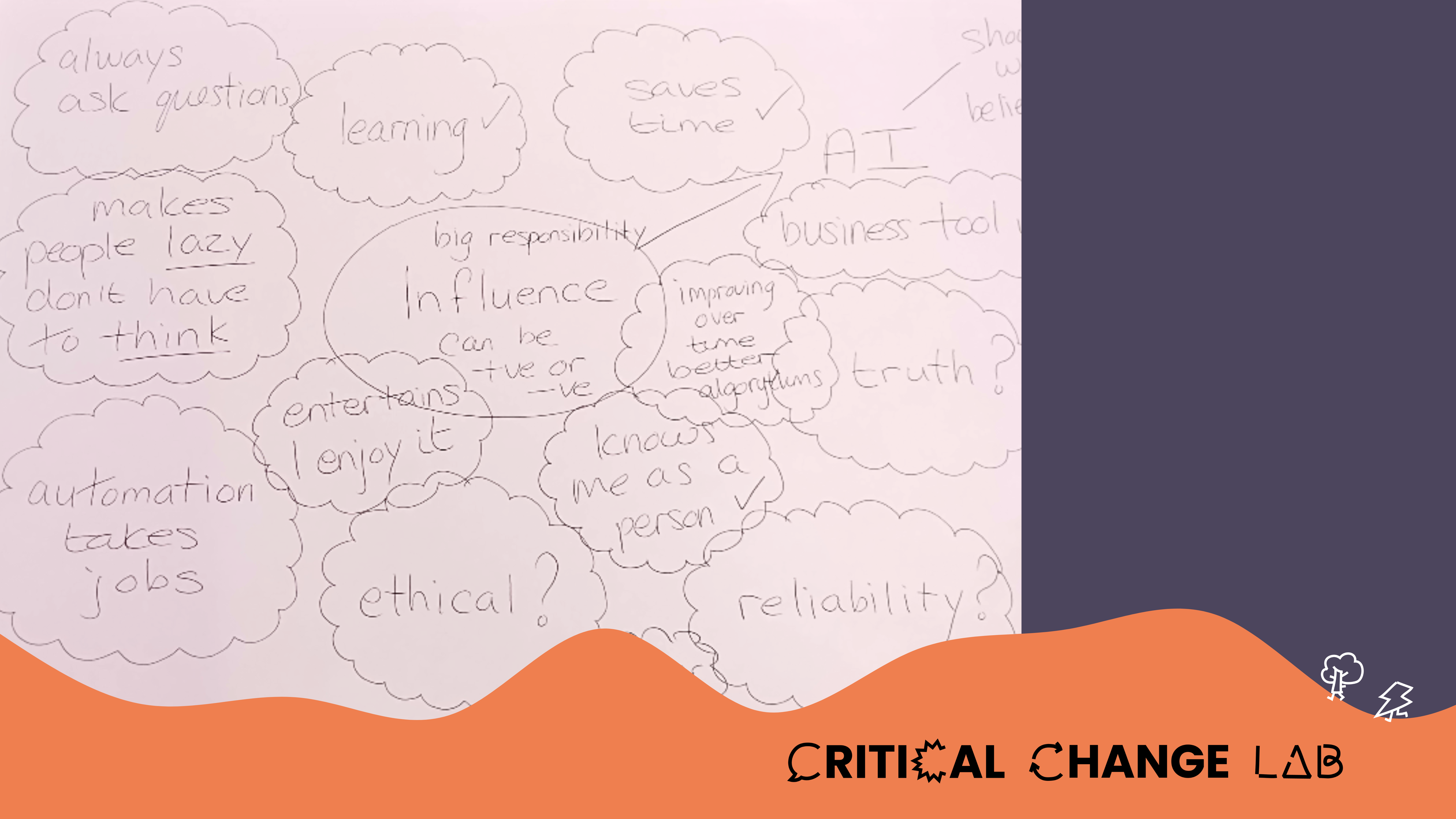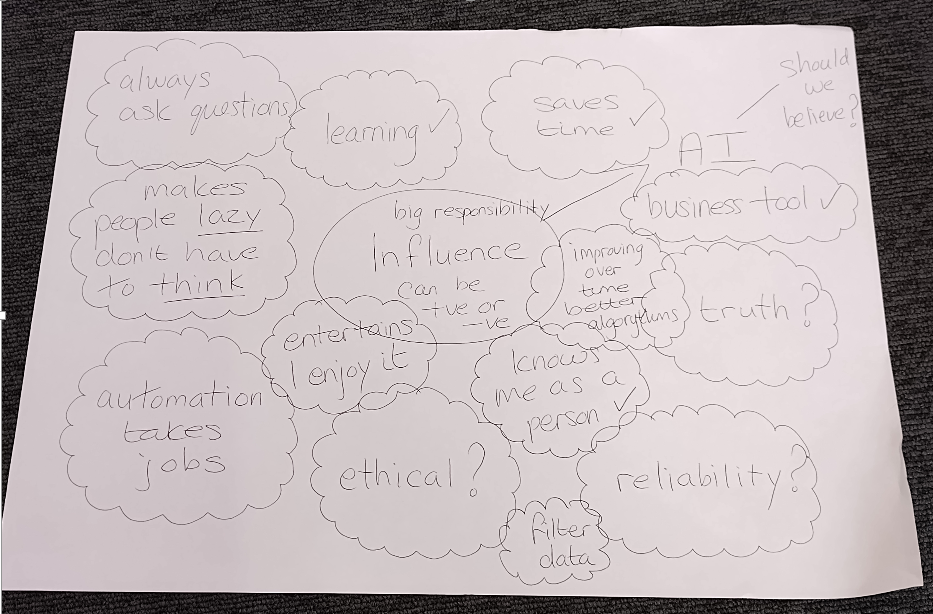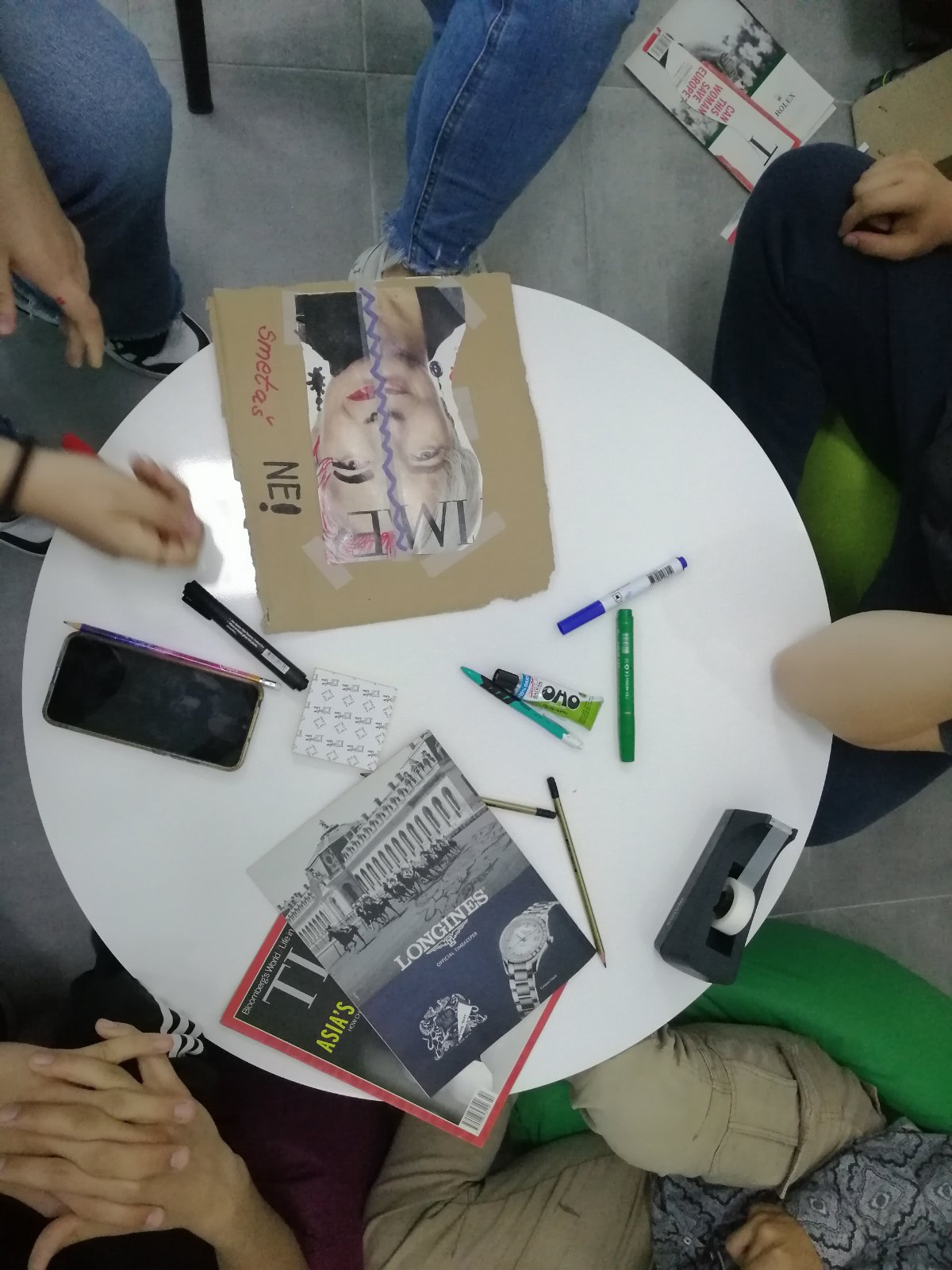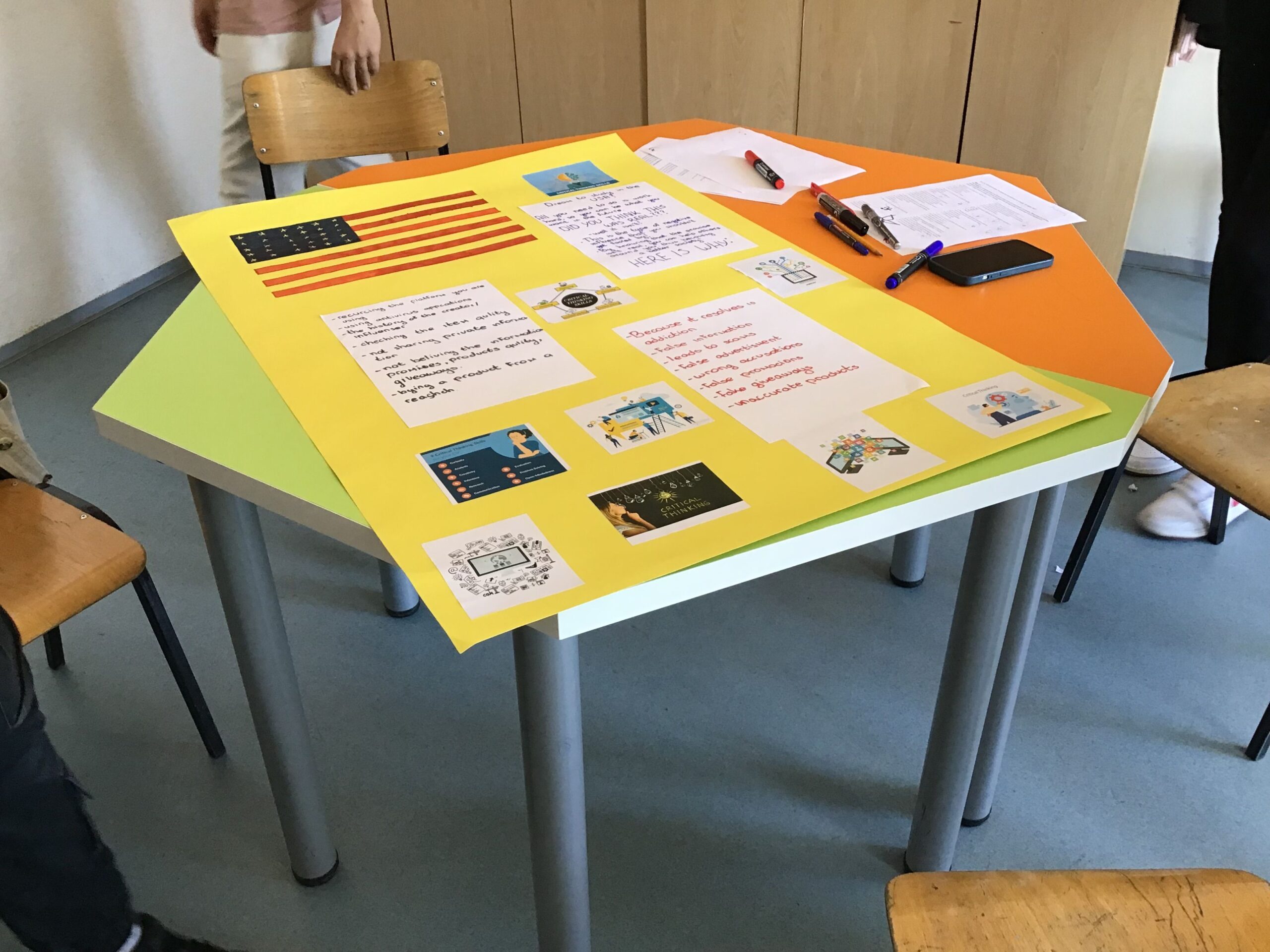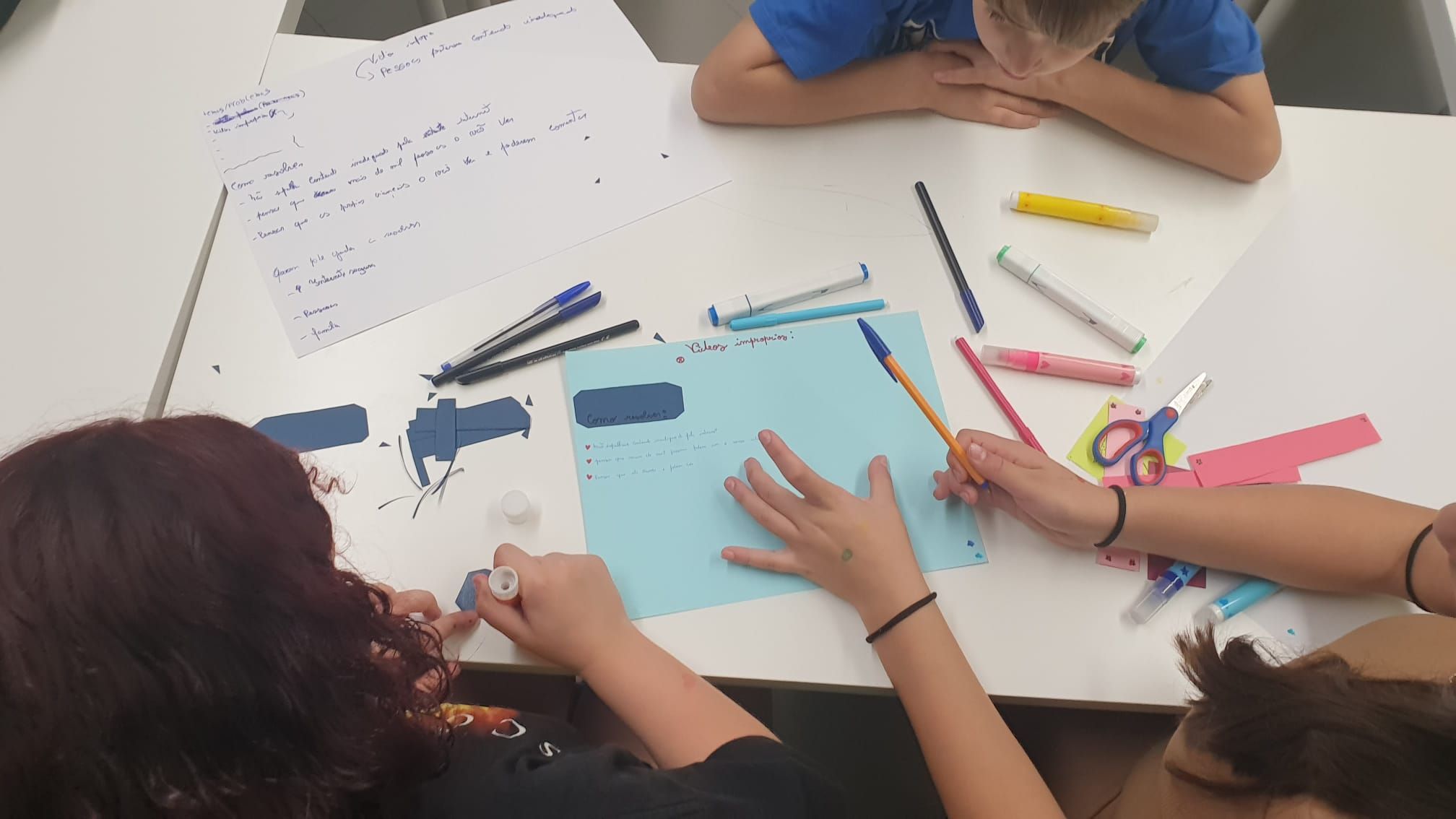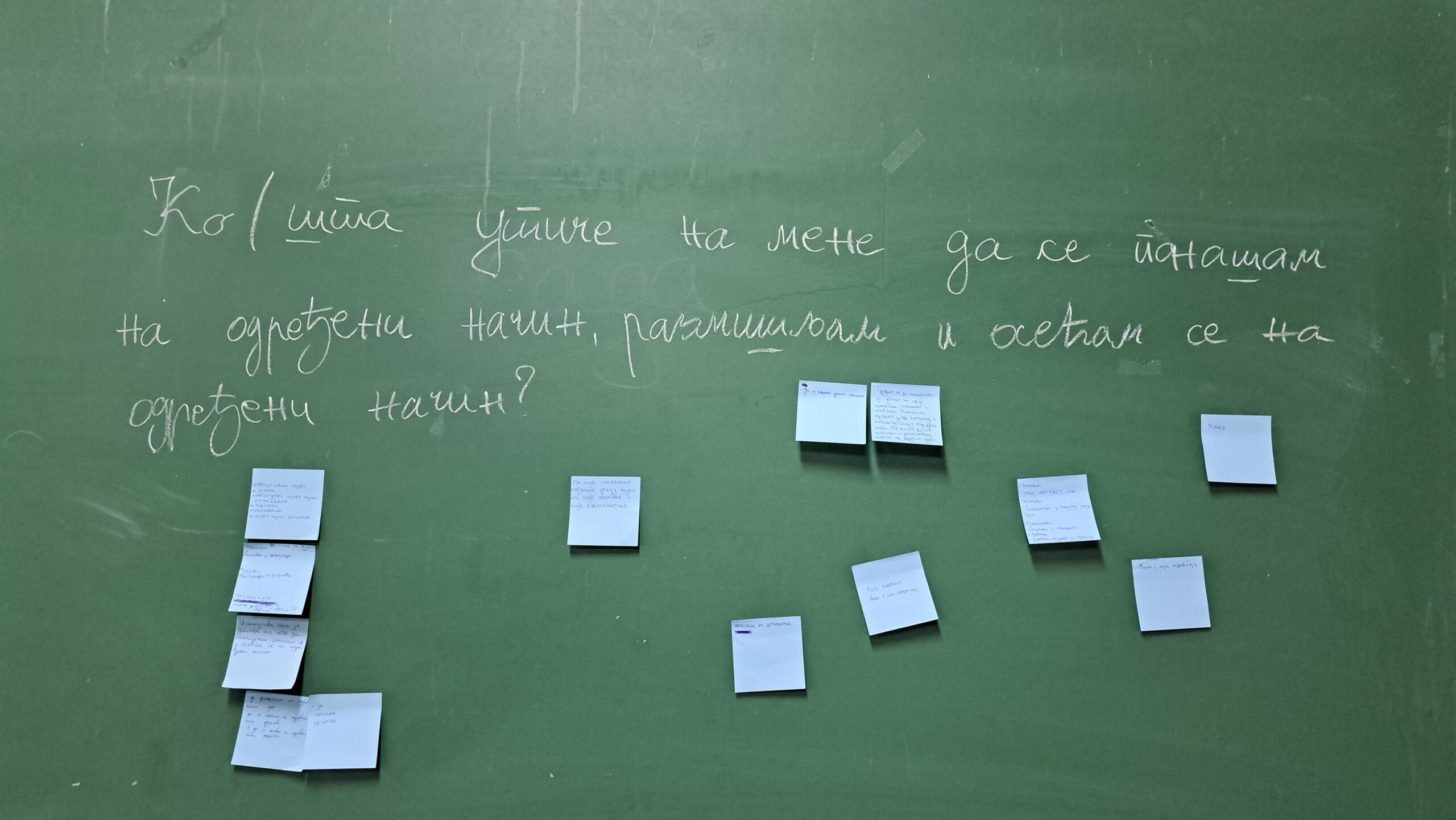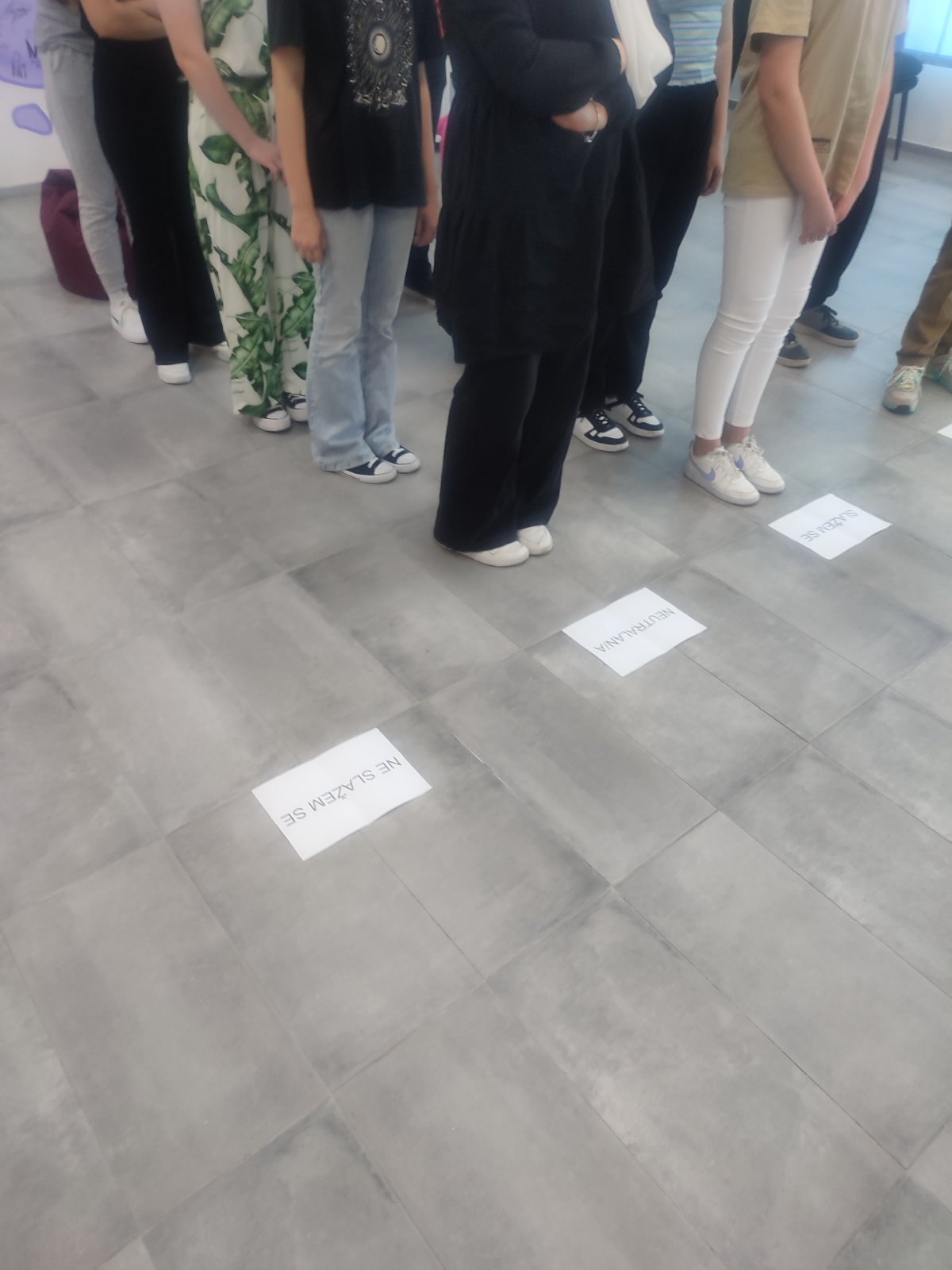The Critical ChangeLab pedagogical model offers Tactical Tech a unique opportunity to delve deeper into the intersections of youth, technology, and democracy. How is technology shaping teens’ participation in democracy? What role do they see for technology in their democratic practice?
Tactical Tech’s Critical ChangeLab sessions focused on the challenges and opportunities that digital influence presents for democratic participation, encouraging teens to envision a future democracy aligned with their values. The labs invited young people to see themselves as active stakeholders and propose actions to shape their communities and the planet.
Critical ChangeLab protagonists: Our partners working with youth
Tactical Tech selected nine partners from nine countries to test this pedagogical method and run Critical ChangeLabs autonomously. These nine partners are a mix of public and civil society organisations, including: Ciência Viva (Portugal), Goethe Institut Skopje (North Macedonia), Centre for Teacher Education of the Faculty of Philosophy of the University of Belgrade (Serbia), La Tata Robotica (Italy), Platforma Uroboros (Czech Republic), NeON Digital Arts (Scotland), Televele (Hungary), Laboratorium Tuzla and Trik (Bosnia and Herzegovina), and researchers and experts working with educational institutions like Dr Yuwei Lin (England).
Each partner selected a group of 10-15 teens to participate in the labs. Over 100 teenagers, aged 11 to 18, from diverse cultural, religious, ethnic, and socioeconomic backgrounds took part. The groups included teens from urban and rural areas, with refugee or migrant backgrounds, and from both privileged and less privileged households.
How were the Critical ChangeLabs implemented?
Following the Critical ChangeLab framework, Tactical Tech designed a three-part, interactive intervention to support teens’ exploration of the topic of digital influence and democracy.
- Session 1: ‘What is Influence?’: Teens questioned the concepts of influence and democracy through ice-breakers, brainstorming, and discussions. They also examined online influence via algorithms and persuasive design.
- Session 2: ‘The Ethics of Influence’: This session explored the contradictions and challenges of digital influence on democracy. Teens reflected on their roles in shaping a future that aligns with their values through activities like mapping, voting, and case study analysis.
- Session 3: ‘Influencing for Change’: Teens identified issues to focus on and worked in groups to envision steps for change, involving prototyping and making activities to support their visions.
Critical ChangeLab Insights: Challenges and Opportunities
Feedback showed that the labs successfully increased understanding and broadened perspectives, with a rise in teens’ confidence and agency. One partner noted, “Initially, participants may have seen themselves as passive recipients of information. Through active participation, they realized their capacity to shape the conversation, contribute unique insights, and effect change.”
Hands-on, visual, and collaborative activities were particularly effective: “The creative process mobilized their creativity and thinking processes” (Televele, Hungary). La Tata Robotica‘s lab (Italy) designed a board game to support reflection and action. NeON Digital Arts (Scotland) included videos and experiments to help young people visualize concepts.
“Initially, participants may have seen themselves as passive recipients of information. Through active participation, they realized their capacity to shape the conversation, contribute unique insights, and effect change.”
Tactical Tech Partner Organisation
Using teens’ experiences as a starting point to discuss democratic participation was also effective: “They started to grasp the magnitude and complexity of the topic,“ reported the the English partner working with young refugees, „often reflecting on how it related to their own experiences.” This partner relied on participants’ experiences to drive conversations, crucial for this group in English Second Language Programs.
Challenges included limited time and the need for the same group to attend all sessions, which was difficult in non-formal settings. The context and background of teens significantly impacted their participation. It is crucial that the methodology account for younger teens, those with mental health struggles, and young refugees. Keeping motivation and providing support is crucial.
Looking ahead
As Tactical Tech prepares for a second cycle of the Critical ChangeLab, debrief sessions with partners are informing revisions to reinforce effective elements like hands-on activities and make aspects like duration and session number more flexible for non-formal learning spaces.
Join our newsletter to continue to be updated on what we’re up to at #CriticalChangeLab. We’ll always keep it interesting, and only send you updates for as long as you want us to.
